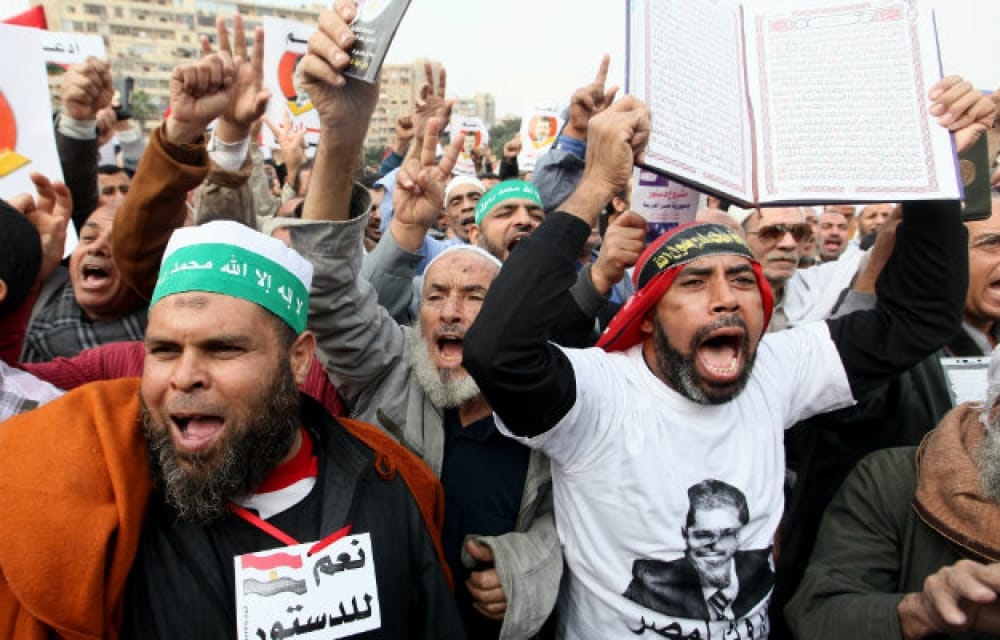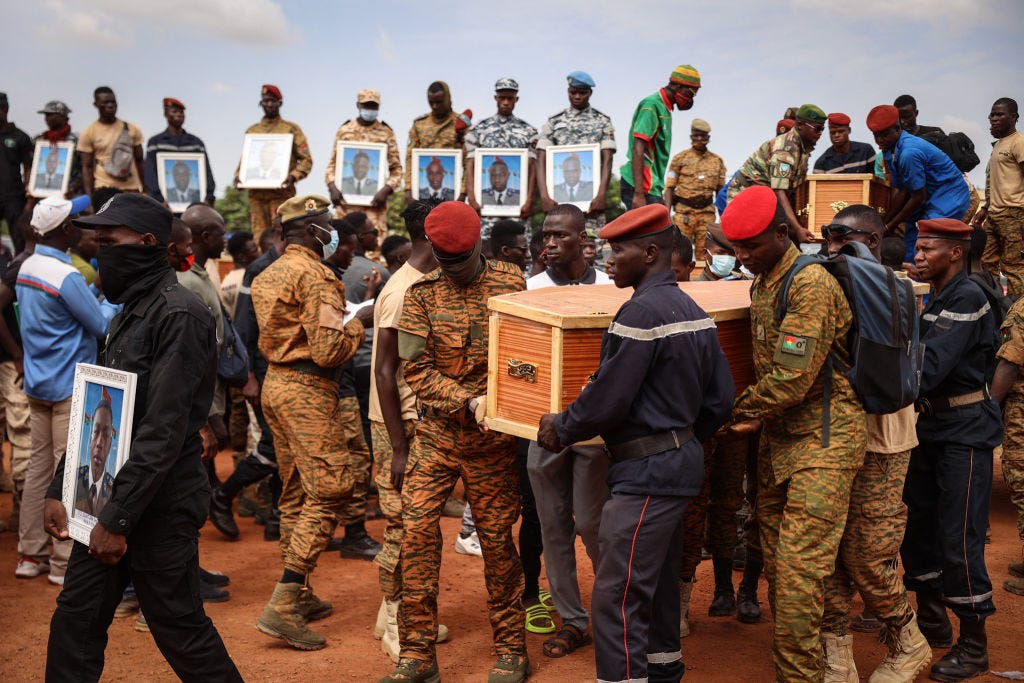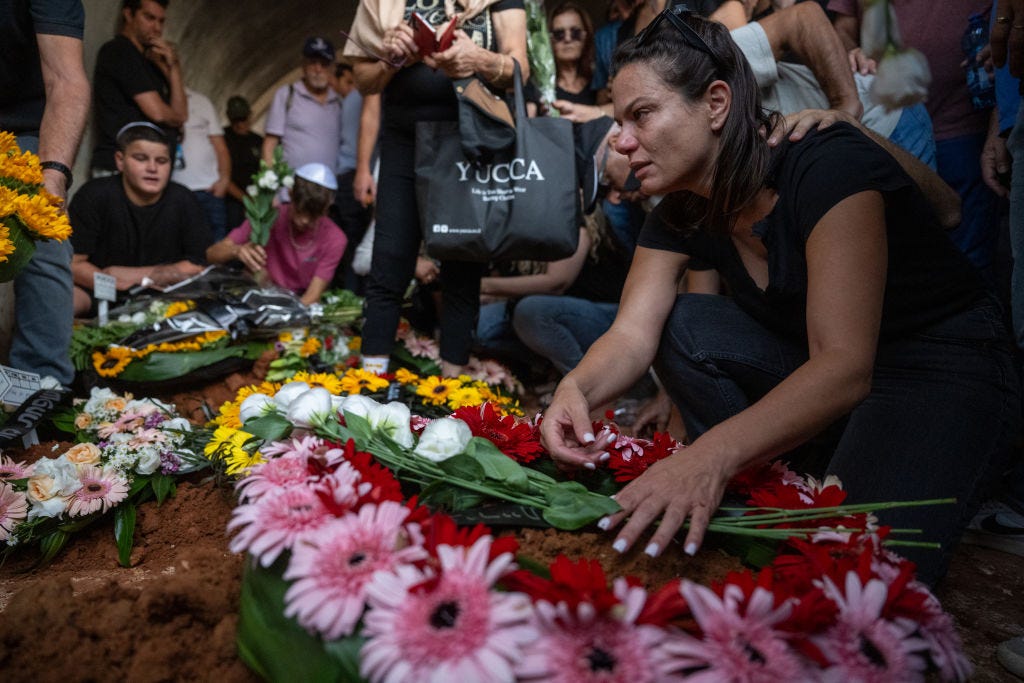
The Free Press, 11. September 2025
This week’s azure September skies over New York brought back memories. Twenty-four years ago, I was due to give a lecture at New York University. The date of the lecture was 9/12. I never flew.
On the day of the attacks, I sat in my study at Jesus College, Oxford, staring incredulously at the pixelated live video of the Twin Towers first blazing, then collapsing. Not long after, in April 2002, I accepted a chair at the Stern School of Business at NYU and resigned my Oxford professorship.
My motivation was partly the hereditary Scottish tendency to march toward the sound of gunfire. As a teenager in 1914, my grandfather John Ferguson had volunteered to fight the Germans. This seemed easier.
Regardless of the 9/11 attackers’ motives, I had a strong objection to terrorism as a political method—a result of growing up in Glasgow in the 1970s, when “the Troubles” in nearby Northern Ireland did more than merely resonate. My first impulse after the attacks, in a piece for The New York Times, was to liken the sympathetic British reaction to 9/11 to the American reaction to the Blitz of 1940-41. But I also warned Americans to “steel themselves for a long, inglorious kind of war that governments in Europe already know only too well.” In wars against terrorists, I wrote, “there are no quick victories. The foe does not line up his tanks for you to flatten, his ships for you to sink. His troops live among you.”
Yet this was not the Provisional IRA. Rereading a transcript of Osama bin Laden’s first post-9/11 video, from November 3, 2001, I am reminded how explicitly he declared a war of religion. “People were divided into two parts” after 9/11, he declared. “The first part supported these strikes against U.S. tyranny, while the second denounced them.”
“The vast majority of the sons of the Islamic world were happy about these strikes,” bin Laden went on, “because they believe that the strikes were in reaction to the huge criminality practiced by Israel and the United States in Palestine and other Muslim countries.” There were demonstrations of support for his action “from the farthest point in the eastern part of the Islamic world to the farthest point in the western part of the Islamic world.” This revealed the key reality: “This war is fundamentally religious. The people of the East are Muslims. They sympathized with Muslims against the people of the West, who are the crusaders.”
With the passage of two and a half decades, it is startling just how unambiguous bin Laden was about his religious motive. “Under no circumstances,” he declared, “should we forget this enmity between us and the infidels. For, the enmity is based on creed. . . . It is a question of faith, not a war against terrorism.” The goal of all Muslims should now be to “resist the most ferocious, serious, and violent Crusade campaign against Islam ever since the message was revealed to Muhammad.”
Bin Laden saw the war he was waging as a counterattack—“to take revenge for those innocent children in Palestine, Iraq, southern Sudan, Somalia, Kashmir and the Philippines.” The U.S. president, George W. Bush, might be the latest “crusader,” who “carried the cross and raised its banner high,” but bin Laden traced his war back to the aftermath of World War I, when “the whole Islamic world fell under the crusader banner … and Palestine was occupied by the British.” Now the tables had been turned. And he had turned them with just 19 men whose faith exalted martyrdom.
Comparing the world today with that of 24 years ago, I am tempted to say that bin Laden lost the war on terror but is winning the clash of civilizations.
You can see why, at the time, many commentators saw 9/11 as vindicating the Harvard political scientist Samuel Huntington, whose seminal essay on “The Clash of Civilizations” had been published in 1993, as well as the Princeton scholar Bernard Lewis, who had long argued that Islam was chronically unable to modernize.
My wife, Ayaan Hirsi Ali, was born in Somalia and shared this view, not because she was a scholar of Islam but because she was a Muslim—and, indeed, a former member of the Muslim Brotherhood. In September 2001, she was working at a political think tank in the Netherlands, having sought asylum there in 1992 to escape war-torn Mogadishu and an arranged marriage.
In her memoir, Infidel, she recalls how, after hearing bin Laden’s video, she “picked up the Quran and the hadith and started looking through them, to check. I hated to do it, because I knew that I would find bin Laden’s quotations in there.” She shot to notoriety by telling the Dutch that the 9/11 attackers were simply following the Prophet Muhammad’s injunction to wage holy war.
Over the past 24 years, I have valiantly tried to see 9/11 differently—not as a civilizational clash between Islam and “the West” but as something that fit better into my own secular frame of reference. Raised an atheist, trained as an economic historian, I felt obliged to look behind what I took to be the facade of religious zealotry.
A decade after the attacks, in a piece I wrote for The New York Times Magazine, I portrayed them as the product of four underlying historical trends. First, the spread of terrorism from the Middle East and Europe to the United States. Second, the post-2000 economic downturn, combined with widening inequality between nations and a coming oil shock, possibly compounded by a Saudi revolution akin to the one that overthrew the Shah in 1979. (I completely failed to foresee the shale oil revolution and bought into the “peak oil” myth). Third, the transition of American global power from informal to formal imperialism. And last, the fragmentation of the multicultural polity. (“Rather than anticipating a clash between monolithic civilizations, we should expect a continued process of political disintegration as religious and ethnic conflicts challenge the integrity of existing multicultural nation-states.”)
Missing in this—and in much of my work that followed—was Islam.
In The War of the World (2006), I got a little closer to Huntington, portraying 1979 as a much bigger turning point than 2001 in terms of the demographic as well as political rise of Islam, a point I returned to in Civilization: The West and the Rest (2011). However, laboriously quantifying every war since Huntington’s essay had appeared, I argued that most conflicts since 1993 had, in reality, been within rather than between civilizations. In The Square and the Tower (2017), I applied network theory to the problem, showing how al-Qaeda itself was a network within a much larger network of Islamist organizations; and that its expansion in response to the invasion of Iraq ultimately necessitated a networked response (in the form of General Stan McChrystal’s Joint Special Operations Command). Most recently, in Doom (2021), I downgraded 9/11 to just another disaster, and not a very big one. “In terms of excess mortality, April 2020 in New York City was … three and a half times worse than September 2001, the month of the 9/11 terrorist attack.”
On reflection, I see that I was overthinking the event. Or perhaps under-thinking it.
Huntington, Lewis, and my wife were right.
In Huntington’s original formulation, “the fundamental source of conflict” in the world after the Cold War would be “cultural”; “the principal conflicts of global politics” would be “between nations and groups of different civilizations”—“Western, Confucian, Japanese, Islamic, Hindu, Slavic-Orthodox, Latin American, and possibly African.” In particular, Huntington predicted, the “centuries-old military interaction between the West and Islam” could become “more virulent.” He also foresaw a “Confucian-Islamic military connection” that would culminate in a conflict between “The West and the Rest.”
Amongst the younger generation of proto-woke Ivy League professors, Huntington was widely mocked for his “essentialism.” But consider, with Huntington’s argument in mind, all that has happened since September 2001. Terrorism has largely been contained in the U.S. and EU, though not globally. In that sense, we won the “war on terror,” which was successfully displaced from the U.S. to the periphery. It was ultimately defeated in Iraq, though not in Afghanistan. Today, as a result, terrorism in the world looks very different from what I foresaw in 2001. According to the Global Terrorism Index 2025, published by the Institute for Economics & Peace, the top five countries most impacted by terrorism last year were: Burkina Faso, Pakistan, Syria, Mali, and Niger. Globally, terrorism peaked in 2014-2015. In countries such as Iraq, it has declined dramatically. (In 2007, terrorists claimed 6,249 lives in Iraq. Last year, the total was just 59.)

In the United States, it is widely asserted, white supremacists now pose a bigger terrorist threat than Islamists—although the attack in New Orleans on January 1, 2025, when Shamsud-Din Jabbar killed 14 people by driving a pickup truck into a crowd on Bourbon Street, is a reminder that Islamic State has not entirely gone away. We don't yet know who murdered Charlie Kirk yesterday. My wild guess: not a white supremacist. Still, the latest Global Terrorism Threat Assessment by the Center for Strategic and International Studies makes clear just how wrong I was in 2001 to anticipate a sustained campaign of jihadist terrorism in the United States. Say what you like about our national security agencies, they won that war.
Yet nonviolent radicalization (what Islam calls dawa as opposed to violent jihad) has advanced significantly everywhere in the Western world, wherever there are Muslim communities. The critical point—as my wife explained in a book on the subject—is that Islamism as a deeply illiberal political ideology does not need to engage in acts of terrorism to spread.
I never cease to marvel at the ingenuity with which the Muslim Brotherhood and other proselytizing organizations spread their network, through mosques, Islamic centers, schools, colleges, and local politics. Consider only the effectiveness of the Council of American-Islamic Relations (CAIR), founded in 1994, which today boasts on its website of having “100+ active lawsuits” and “600,000+ Legislative Action Alerts,” whatever that means. It has almost 30 offices throughout the country.
Most people who encounter CAIR take it to be something like the Anti-Defamation League for Muslims—a civil rights organization that just happens to be concerned about the rights of Muslims. But it is not that at all. Rather, it is more like a front organization for the Muslim Brotherhood of America. In a recent article, Ayaan has brilliantly described the many ingenious ways that CAIR exploits the institutions of our open society, most recently settling a lawsuit to avoid revealing its sources of funding.
Good luck following the money. In her words:
The North American Islamic Trust (NAIT) controls mosque properties and financial assets. The Islamic Society of North America (ISNA) lends the Brotherhood a degree of religious legitimacy. The American Muslim Council (AMC) works the political front, cutting deals and building alliances. The Muslim American Society (MAS) runs operations on the ground, embedding itself firmly in local communities. In universities, the International Institute of Islamic Thought (IIIT) shapes the narrative. On campuses, the Muslim Students’ Association (MSA) targets the next wave of recruits. The Islamic Circle of North America (ICNA) and Young Muslims (YM) focus on families and youth.
Even the UAE has proscribed CAIR as a terrorist organization. Yet dozens of Democratic legislators are on the record on the CAIR website, praising its work as they doubtless also praise the National Association for the Advancement of Colored People.
A complementary effort is the way Qatar—the largest source of foreign donations to U.S. universities since reporting began in 1986—funnels money into academia. According to the Network Contagion Research Institute, as reported in The Free Press, nearly a third of Qatari donations to American colleges—over $2 billion—were given between 2021 and 2024. As Mitchell G. Bard shows in “Arab Funding of American Universities” (2025), this money is one of the reasons college campuses have become such hotbeds of antisemitism in recent years.
It is not just that the West has been successfully penetrated by an antagonistic civilization that fundamentally rejects the fundamental division between religion and politics—church and state—that lies at the heart of both Christianity and Judaism. The West is also being geopolitically outmaneuvered by “the rest” in just the way Huntington foresaw.
Contrast the global order after 9/11 with the global order today. We have come a long way since NATO secretary-general George Robertson’s statement on September 11, 2001—“Our message to the people of the United States is . . . ‘We are with you.’ ”
In the past three years, Zbig Brzezinski’s worst-case scenario has come about. “Potentially, the most dangerous scenario,” he wrote in The Grand Chessboard (1997), “would be a grand coalition of China, Russia, and perhaps Iran, an ‘antihegemonic’ coalition united not by ideology but by complementary grievances.” Since the Russian invasion of Ukraine, that grand coalition has come into being, with North Korea as a fourth member. The “Axis of Upheaval” (China, Russia, Iran, and North Korea) are now cooperating in military, economic and diplomatic ways. Moreover, the Trump administration’s combative treatment of American allies (the European Union, Japan, South Korea) and neutrals (Brazil, India, and Switzerland), not least with respect to trade policy, is alienating not only the traditionally nonaligned but also key partners.
The upshot is that Israel is now virtually alone in fighting against the Islamists, so that even the United States wants plausible deniability when, as this week, the Israeli Air Force strikes the leadership of Hamas in the Qatari capital, Doha.
The point is that the clash of civilization continues. Now ask yourself: Who’s winning?
The Hamas attack on Israel two years ago was essentially an Israeli 9/11 (worse in relative terms). But compare the global reactions. UN Security Council Resolution 1373, adopted unanimously on September 28, 2001, called on all member states to freeze terrorist financing, pass anti-terrorism laws, prevent suspected terrorists from traveling across international borders, and screen asylum seekers for possible terrorist ties. This was an unprecedented show of international unity.

By contrast, no Security Council resolution could be passed in the wake of 10/7. UN General Assembly Resolution ES-10/21—which called for an “immediate” and “sustained” humanitarian truce and “cessation of hostilities” in Gaza and condemned “all acts of violence aimed at Palestinian and Israeli civilians”—was introduced by Jordan on behalf of a group of Arab states. When it was adopted on October 27, 2023, 121 voted in favor, 44 abstained, 14 absented themselves, and only 14 (including Israel and the U.S.) voted against. Ten countries have recognized the non-existent Palestinian state since October 7, including three European Union member states, Ireland, Slovenia, and Spain. Canada, France, and the United Kingdom are itching to join them.
In short, comparing the world today with that of 24 years ago, I am tempted to say that bin Laden lost the war on terror but is winning the clash of civilizations. That’s not to say his particular brand of Salafist jihadism is winning; it can even be argued that it’s in decline. Bin Laden’s creed was always too uncompromising to form alliances of convenience. By contrast, the pro-Palestinian “global intifada” is much more omnivorous, and can easily absorb the old left (Marxism and pan-Arabism) and the new (anti-globalism and wokeism).
Demographically, Islam is certainly winning. According to Pew Research (June 2025), “The number of Muslims around the world grew 21 percent between 2010 and 2020, from 1.7 billion to 2.0 billion.” That was twice as fast as the rest of the world’s population, increasing the Muslim share from 24 percent to 26 percent. Earlier research by Pew (from 2015) forecast that “if current trends continue, by 2050 the number of Muslims will nearly equal the number of Christians around the world.” In Europe, Pew estimated, Muslims would make up 10 percent of the overall population, up from 5.9 percent in 2010. In the United States, Muslims would outnumber Jews. This does not seem implausible. Already in the United Kingdom, Muhammad has overtaken Noah as the top name for baby boys in England and Wales, having been in the top 10 since 2016.
At the same time, Western civilization today is so much more divided than it was 24 years ago. The public response to 10/7 illuminated the divisions. Whereas older voters generally remain more pro-Israel than pro-Palestinian, younger cohorts have swung the other way. Perhaps that’s because to Gen Z, 9/11 is a faint memory—as distant as the Cuban Missile Crisis and Kennedy’s assassination were to my generation. But it’s also because the Islamists have done such a good job of co-opting the campus radicals, somehow overriding the cognitive dissonance in slogans such as “Queers for Palestine,” while at the same time tapping the antisemitism that still lurks on the far right.
Walking the streets of New York this week, I felt old. To my children, my students, and my employees, 9/11 is not a memory. It is not even an historical fact.
According to Brookings, “young Republicans aged 18-49 have shifted from 35 percent having an unfavorable view of Israel to 50 percent unfavorable. . . . Among Democrats, there has been an increase of 62 percent to 71 percent [with an unfavorable view of Israel] in the 18- to 49-year-old demographic. . . . Only 9 percent of those aged 18 to 34 approve of Israel’s military actions in Gaza.”
A recent poll in the UK by the Campaign Against Antisemitism revealed a striking shift in attitudes towards Jews. Once again, the swing towards antisemitism is more pronounced amongst the young:
- “45 percent of the British public … believes that Israel treats the Palestinians like the Nazis treated the Jews … 60 percent of young people believe this.”
- “49 percent of 18-24-year-olds are uncomfortable spending time with people who openly support Israel.”
- “Only 31 percent of young voters agree that Israel has a right to exist as a homeland for the Jewish people.”
- “26 percent of the British public believes that Israel can get away with anything because its supporters control the media.”
- “19 percent of young people believe that the Hamas attack on Israel was justified.”
Such attitudes can be found in Britain on both the political left and the political right. A third of Labour voters say that they are uncomfortable spending time with people who openly support Israel, as do 54 percent of Green Party voters, 15 percent of whom believe that Hamas’s attack on Israel was justified. But almost one in four supporters of the rapidly growing Reform UK Party, led by Nigel Farage, believe that Jewish people “chase money more than other people do.” During the Cold War, the West was often referred to as a “Judeo-Christian” civilization. That term is starting to seem like an anachronism.
Two years ago, another bin Laden pronouncement—his “Letter to America,” originally published on the first anniversary of 9/11—enjoyed a sudden resurgence of interest, not least because its attacks on the power of American Jews seemed to strike a chord with young users of TikTok. One popular video showed a young woman brushing her hair with the caption, “When you read Osama bin Laden’s letter to America and you realize you’ve been lied to your whole entire life.” At one point in November 2023, a TikTok search for #lettertoamerica found videos with 14.2 million views. In total, approximately 300 videos were posted under that hashtag.
Walking the streets of New York this week, I felt old. To my children, my students, and my employees, 9/11 is not a memory. It is not even an historical fact. It is something people argue about on social media. As I write, Tucker Carlson has just told Piers Morgan that an “FBI document” indicated “an Israeli spy ring in the United States … knew 9/11 was coming.” The reality is, of course, that only the conspirators themselves knew that. They also knew, very clearly, why they were going to do it.
It has taken me all these years to understand that 9/11 really was a clash of civilizations. And it has taken me until this week finally to face the reality that ours is losing.
